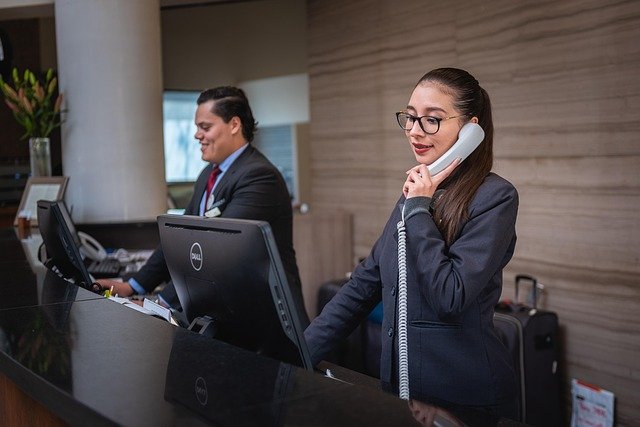Exploring Hotel Jobs in Dubai: Careers and Industry Overview
Dubai's thriving hospitality sector offers diverse career opportunities in its world-renowned hotel industry. From luxury resorts to boutique accommodations, professionals can find roles spanning culinary arts, guest services, management, and specialized positions that combine competitive compensation with unique cultural experiences in this global tourism hub.

Dubai continues to be a major gateway for global visitors, which keeps hotel operations active across the calendar. From waterfront resorts to business hotels near key commercial districts, properties rely on well coordinated teams that deliver consistent guest experiences. Those exploring hospitality careers will find a wide spectrum of functions, from guest facing service to technical operations, each with specific expectations for professionalism, cultural awareness, and compliance with local regulations.
Overview of the Hotel Industry in Dubai
Dubai’s hotel landscape spans luxury resorts, lifestyle brands, midscale chains, boutique properties, and long stay serviced apartments. International groups operate alongside regional brands, and many properties integrate dining, wellness, events, and entertainment under one roof. The city’s status as a transport hub and a destination for conferences, exhibitions, and leisure travel helps maintain steady year round demand. Service standards are typically high, supported by rigorous brand guidelines, quality audits, and guest feedback systems. Careers exist on property and at corporate offices, including roles in operations, sales and marketing, revenue management, finance, human resources, and technology. Seasonal peaks, citywide events, and evolving traveler preferences influence staffing levels, training priorities, and opportunities for internal mobility.
Career pathways in Dubais hospitality sector
Career progression in hotels is often structured yet flexible. Many professionals begin in entry level roles and advance by mastering procedures, completing internal training, and demonstrating leadership. In rooms division, paths may lead from receptionist to supervisor, duty manager, and front office manager, with lateral moves into reservations or revenue. In food and beverage, common progression runs from server or host to captain, supervisor, outlet manager, and multi outlet manager. Culinary tracks include commis, demi chef, chef de partie, sous chef, and head chef, with specializations such as pastry or banqueting. Support functions offer distinct ladders in procurement, finance, learning and development, and information technology. Management trainee programs and cross exposure assignments can accelerate growth for candidates who consistently meet performance standards and show adaptability in a fast paced environment.
Required qualifications and skills for hotel roles
Hiring requirements vary by role, but a mix of technical competency and soft skills is essential. Strong spoken and written English is widely expected, while Arabic and other languages are valuable in guest facing roles. Customer service, problem solving, and conflict resolution help teams manage high occupancy periods and complex itineraries. For culinary positions, formal training plus food safety certifications such as HACCP are commonly requested, while bar roles may require beverage knowledge and safe service training. Front office professionals benefit from familiarity with property management systems such as Opera and channel management basics. Lifeguards, spa therapists, and security staff often need relevant certifications from recognized bodies. Professional grooming, punctuality, and attention to detail remain baseline expectations. Continuous learning through brand academies and industry short courses supports advancement and keeps skills current.
Working conditions and culture in Dubai
Hotel operations run on shifts that cover mornings, evenings, nights, weekends, and public holidays. Scheduling aims to match guest demand, with busier periods during holidays, major events, and conference seasons. Teams in Dubai are highly multicultural, so cultural sensitivity, clear communication, and respect for diverse perspectives are crucial. Dress codes and grooming standards are typically well defined, varying by department and brand. During Ramadan, service patterns and operating hours may be adjusted in line with local customs and regulations. Employers often provide uniforms and may offer shared transportation or staff housing, depending on policy. Performance is usually measured through guest satisfaction, service audits, and operational targets, with coaching and formal appraisals guiding development plans. Health and safety protocols, including incident reporting and hygiene standards, are integral to daily routines.
Legal requirements for working in Dubais hotel industry
Employment is generally based on a formal contract under UAE labour law, with visa sponsorship provided by the employer in most cases. The process commonly includes a work permit, medical fitness testing, Emirates ID registration, and residence visa stamping. Attestation of academic or professional qualifications may be required, especially for specialized roles. Certain positions also require local approvals or certifications, such as food safety training for kitchen teams, security clearances for security personnel, or lifeguard certifications for pool operations. Standard working hours are typically defined by law, with overtime, weekly rest days, and leave entitlements set out in regulations and company policies. Health insurance coverage is mandatory in Dubai, and employers customarily arrange compliant plans. Adherence to licensing rules, responsible service of beverages, and data protection standards is expected across departments.
A career in Dubai’s hotel sector rewards consistency, service mindset, and the ability to collaborate across functions. Understanding how properties are structured, how progression works, what qualifications carry weight, and the regulatory steps involved helps candidates plan their development. By aligning skills with operational needs and staying informed about workplace norms and legal obligations, professionals can build resilient hospitality careers in a city known for high service benchmarks and diverse guest expectations.




